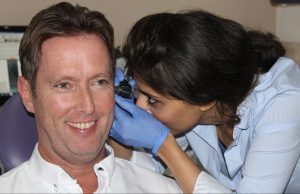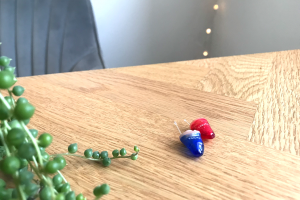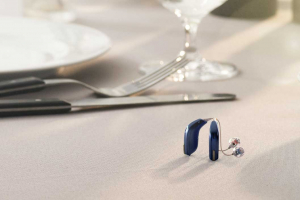The traditional Summer holiday season is here and a vast majority of us will be flocking to beach destinations across the globe as well as here in the UK… The question is, should we wear our hearing aids to the beach?




Is sand safe for hearing aids?
The short answer, no! We all love strolling across the beach and feeling the sand in between our toes, it really is the perfect Summer activity. Our top tip would be to remove your hearing aids and pack them away before stepping foot on the beach. However, we can understand that some people do rely very heavily on their hearing aids and do not wish to remove them. In this instance, we would always advise that you wash your hands well before handling your hearing aids again. You must ensure any sand is washed from your hands before touching them as sand can block hearing aids in much the same way that earwax does. If you do not wish to remove your hearing aids before visiting the beach, we really would advise steering clear on windy days. On these days, the sand can get whipped up and still enter your hearing aids.
Should I take a dip?
Hearing aids do not react well to moisture. Water damage, and specifically salt water damage, could permanently damage your hearing aids meaning you’d have to replace them. Water damage is usually not covered under any warranties so it really is important for you to keep them water free. Obviously if you have followed our top tip from above, your hearing aids will have been packed away before you get to the beach and therefore are at no risk of sea water damage. If you are wearing them, and even only plan to paddle, we really do urge you to remove your hearing aids before entering the water. It is not worth the damage that could occur to them.
If you’ve travelled to warmer climates, you may suffer with moisture due to the humidity. Unfortunately, humidity can often have the same effect as water on hearing aids so if you’re heading to a humid place, you should be careful to take time to fully dry your aids and give them a rest from the moisture. You can do this by wiping them with a dry, dust-free cloth and any excess dust / moisture will be removed. If you do this each evening before bed, you can leave the battery door open (unless you have rechargeable aids) overnight and give any moisture a change to dry out. There are various dehumidifying cases you can purchase, electric and non-electric, which will fully dry out your hearing aids.
More recently, there have been new releases of hearing aids which are waterproof. The Phonak Lumity Life range are waterproof up to half a metre of water. If you’re looking for that additional level of water damage protection, then this may be the model for you.
If you’d like to further discuss any summer holiday hearing aid issues, you know where we are.



